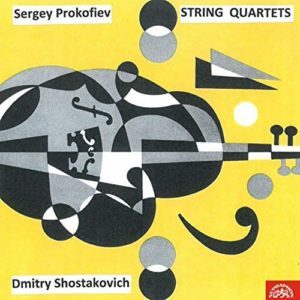Peter Smith's Blog, page 72
October 27, 2018
IFL2: the introductory chapters yet again
I’ve been again tidying the first tranche of chapters of the second edition of my Introduction to Formal Logic. This time, in particular, I’ve removed some careless talk about ‘predicates’ which — as was rightly pointed out to me in a discussion of another post — just didn’t cohere with what I said more officially about predicates later. So here’s the latest version:
For new readers, as I’ve said here before, the headline news is that these really are introductory chapters (general scene-setting before we start work in earnest on formal propositional logic). So I introduce ideas like: validity, deduction vs induction, showing validity by ‘proofs’, showing invalidity by ‘counterexamples’. I also briefly discuss logical validity in a narrow sense vs deductive validity more generally. A quick look at the Table of Contents should give you a better idea of what these chapters are about.
Hopefully, the presentation is accessible and reasonably user-friendly without talking down to the reader. So this first part of IFL2 should be of interest and of use to any philosophy student about to start a logic course this next term/semester (indeed, they should be of use to any beginning philosopher). Do please spread the word, and do point prospective students to the link!
NB If anyone wants to see more of the book in draft form, let me know at the email addrss given in the page headers for that first tranche of chapters. The treatment of propositional logic (explanation of syntax/semantics, truth tables, truth trees, motivation for material conditional etc. etc.) is ready for prime time, or at least ready for comments. The deal on your side is that if you do ask for more, that counts as an undertaking not to recirculate the chapters, and an undertaking to give me whatever comments/corrections you have. On my side the deal is that useful comments get your name in lights in the “Thanks” section at the beginning of the book!
The post IFL2: the introductory chapters yet again appeared first on Logic Matters.
The Smetana Quartet play Prokofiev and Shostakovich
 A while ago, I wrote here regretting the fact that I no longer had — from among the old, bashed-up, vinyl that got moved from loft to loft and was eventually given to Oxfam — a wonderful Supraphon LP of the great Smetana Quartet playing Prokofiev’s First String Quartet and Shostakovich’s Third. I must have bought this as a student half a century ago and remembered it as a very striking and deeply engaging introduction to the chamber music of these composers. Well, I’ve just discovered that — although there seems to be nothing about this on Supraphon’s own website — the recording is available as a very inexpensive download from Amazon (maybe from others too though not, it seems, from iTunes). It really is as good as I remembered, and is warmly recommended, and not just for reasons of nostalgia!
A while ago, I wrote here regretting the fact that I no longer had — from among the old, bashed-up, vinyl that got moved from loft to loft and was eventually given to Oxfam — a wonderful Supraphon LP of the great Smetana Quartet playing Prokofiev’s First String Quartet and Shostakovich’s Third. I must have bought this as a student half a century ago and remembered it as a very striking and deeply engaging introduction to the chamber music of these composers. Well, I’ve just discovered that — although there seems to be nothing about this on Supraphon’s own website — the recording is available as a very inexpensive download from Amazon (maybe from others too though not, it seems, from iTunes). It really is as good as I remembered, and is warmly recommended, and not just for reasons of nostalgia!
The post The Smetana Quartet play Prokofiev and Shostakovich appeared first on Logic Matters.
October 14, 2018
Category theory page updated
I’m not really keeping abreast with what’s available on elementary category theory right now — who would have thought that revising an elementary logic text would be so all-consuming? (Maybe it is one of those cheering features of, erm, mature years … you can only think about one thing at a time.)
However, since I was just about to bring the resource to the attention of our local Part III Maths students, I thought I should quickly check my category theory page here – which, if you don’t know it, links to a lot of available lecture notes, legally available books etc, not to mention my stalled Gentle Intro to Category Theory. So I’ve updated some links, deleted some other seemingly dead ones, and done a small amount of tidying. Do let me know about any errors and omissions and about any newly available lecture notes, etc.
Lots of fun reading if you like that kind of thing …
The post Category theory page updated appeared first on Logic Matters.
October 9, 2018
What is a predicate?
Reworking some introductory chapters on QL languages, I thought I should make some general introductory, pre-formal, remarks about names and predicates. But then, before talking about arities, about sense vs extension, etc., there’s a more basic question: what is a predicate? A simple question, but with a surprising range of answers to be found in the literature. Some candidates:
A predicate is just an expression, as in ‘is wise’ in the ordinary language sentence ‘Socrates is wise’, or ‘loves’ in Romeo loves Juliet’ — an expression which can combine with names or other suitable expressions to form sentences.
A predicate is an expression with gaps, as in ‘ is wise’ or ‘ loves ’. Or since gaps are hard to spot we may use gap-markers, which aren’t part of the gappy predicate expression but just signal where the gaps are, and represent the predicates as ‘… is wise’ or ‘… loves …’.
A predicate is an expression with gaps and a rule as to whether the gaps have to be filled in the same way — so in a different notation, we might distinguish
‘① loves ②’ from ‘① loves ①’.
A predicate is a linguistic function — for example, the function that sends the name ‘Socrates’ to the sentence ‘Socrates is wise’, sends the name ‘Plato’ to the sentence ‘Plato is wise’, sends the name ‘Aristotle’ to the sentence ‘Aristotle is wise’ and so on. Or for another example, the function which sends ‘Seneca’ to ‘Seneca killed Seneca’, sends ‘Mark Anthony’ to ‘Mark Anthony killed Mark Anthony’, sends ‘Lucretia’ to ‘Lucretia killed Lucretia’.
A predicate is a property of sentences — perhaps the property shared by ‘Seneca killed Seneca’, ‘Mark Anthony killed Mark Anthony’, ‘Lucretia killed Lucretia’ …
And there are other variant candidates. What to do? Wrangling about the right answer, engaging e.g. with the arguments of Frege, Geach, Dummett and others, is not what I would want to be doing in an introductory logic book! In fact, I’d like to be able to write mostly as if predicates are simple expressions which come with rules about how they combine, and not get any fancier. But still, if there were a compelling argument for going with another story about the nature of predicates and rejecting the rest, I wouldn’t want to be corrupting the youth by blithely giving the wrong account.
It’s mighty cheering then to (re)read Alex Oliver’s paper ‘What is a predicate?’ in The Cambridge Companion to Frege where he argues — I think pretty convincingly — that
Whereas other authors argue for different candidates, I propose that there is nothing to choose between them. Anything goes: each is equally serviceable. … The choice between them can be made arbitrarily, or, when the context allows, it can be left unmade.
Hooray! I can point in the Further Readings to Alex’s arguments as justification enough for the way I write about predicates, and leave things at that. And if you don’t know Alex’s paper, you should do: take this as a warm recommendation!
A footnote, though. I was wondering whether to talk of one-place, unary, or monadic predicates. Surely a trivial decision! And yet …
Starting from the sentence ‘If Socrates is a philosopher, Socrates is wise’ and removing the recurring name to get the expression ‘If ① is a philosopher, ① is wise’. This expression can be used to attribute the property (unary relation) of being-wise-if-a-philosopher to an individual object, or we can quantify in, e.g. to say that everyone has that property. It is natural to class this expression, then, as a unary predicate belonging with other simpler unary predicates that can be used to attribute unary relations. However, it would seem a bit unhappy to say that this is a one-place predicate, given that — as presented — it wears on its face the fact there are two places for a name to go. This gives us some reason perhaps to prefer the more technical sounding ‘unary’ (or ‘monadic’). Which surely has been said before somewhere!
The post What is a predicate? appeared first on Logic Matters.
September 30, 2018
The Pavel Haas Quartet, again
 To a packed Wigmore Hall again last week, to hear the Pavel Haas Quartet. The concert started with Schubert’s Quartettsatz and ended with Dvořák’s A flat Quartet, Op. 105, both wonderfully well played. But in between, there was one of the greatest chamber music performances I have ever heard, whether live or recorded. The PHQ played Schubert’s A minor ‘Rosamunde’ Quartet with stunningly controlled emotional intensity to an absolutely rapt sell-out audience. They play with little vibrato and even less portamento on nineteenth century Czech instruments, which gives a sound far from over-smooth, and utterly suited to Schubert’s melancholic lament for lost innocence, lost content, in this Quartet. Extraordinary ensemble playing from all four of them — though Veronika Jarůšková (always a striking presence) was simply spellbinding.
To a packed Wigmore Hall again last week, to hear the Pavel Haas Quartet. The concert started with Schubert’s Quartettsatz and ended with Dvořák’s A flat Quartet, Op. 105, both wonderfully well played. But in between, there was one of the greatest chamber music performances I have ever heard, whether live or recorded. The PHQ played Schubert’s A minor ‘Rosamunde’ Quartet with stunningly controlled emotional intensity to an absolutely rapt sell-out audience. They play with little vibrato and even less portamento on nineteenth century Czech instruments, which gives a sound far from over-smooth, and utterly suited to Schubert’s melancholic lament for lost innocence, lost content, in this Quartet. Extraordinary ensemble playing from all four of them — though Veronika Jarůšková (always a striking presence) was simply spellbinding.
Apologies though: it is no great joy to read about events you have missed! Still, I’m allowing myself to note last week’s concert because it also gives me an opportunity to tell you about another PHQ concert that you can still hear. Earlier in the year, they played an all-Shostakovich concert in Brussels — the String Quartet no 7, Op. 108, Second Piano Trio Op. 67, and Piano Quintet Op. 57: the pianist was Boris Giltburg. You can now catch a recording of the concert for 30 days on WDR 3 radio, here.
And a request: did anyone reading this happen to record the PHQ’s Edinburgh concert which I mentioned here? If so, I’d really like to hear from you, as I managed to foul up the recording of it myself.
The post The Pavel Haas Quartet, again appeared first on Logic Matters.
September 18, 2018
Postcard from Ravello

Down to Ravello for a few days to do nothing-very-much, after a busy stay in Naples (not a city we really know at all).
For holiday entertainment — having speedily devoured Kate Atkinson’s immensely readable new Transcription, picked up at the airport — I’ve been reading Norman Lewis’s classic Naples ’44.
No, entertainment is not quite the right word. The wartime diary is wonderfully well written, and often wryly amusing. But too many scenes are cruel reminders of how fragile our social order can be. Not perhaps what I needed right now. I just get all the more angry at the mad Brexiteers’ casual destructiveness.
And there I was, promising myself a temporary holiday from fretting about all that …
The post Postcard from Ravello appeared first on Logic Matters.
September 10, 2018
IFL2: the introductory chapters again
[Updated file, linking to revised document, brought to front of the blog] After a hiatus, it’s back to work on the second edition of my Introduction to Formal Logic. I’ve been tidying and (I hope!) slightly improving the first tranche of chapters — so here they are again (with an embarrassing number of corrections kindly provided by Scott Weller).
IFL2, Chapters 1 to 7 Download
A quick look at the Table of Contents should give you a good idea of what they are about if you don’t know the book. If you do know the first edition, then the main change is that I now take a somewhat different line about the notion of logical validity.
The headline news, anyway, is that these really are introductory chapters (general scene-setting before we start work in earnest on propositional logic in Chapter 9). So I introduce ideas like: validity, deduction vs induction, showing validity by ‘proofs’, showing invalidity by ‘counterexamples’, logical validity vs validity (necessary preservation of truth more generally). The chapters aim to be accessible and reasonably user-friendly without talking down to the reader. So these chapters hopefully should be of interest and of use to any philosophy student about to start a logic course this next term/semester (indeed, they should be of use to any beginning philosopher). Do please spread the word, and do point prospective students to the link!
I’ll leave these chapters online, freely available, for the next couple of months or so. In the meantime, all comments/corrections as always most gratefully received!
The post IFL2: the introductory chapters again appeared first on Logic Matters.
Witchcraft
 A chance find in our favourite, delightfully well run, richly stocked, Oxfam bookshop (the one in Saffron Walden, since you ask) — a copy of Madeline Miller’s recently published Circe. The novel has been very well reviewed (and some readers I follow on twitter have been bowled over). But we weren’t planning on getting this, as — for whatever reason — neither of us really took to the author’s previous best-seller, The Song of Achilles. Still, here was the really beautifully produced hardback of her new book, at a fraction of the price. And after reading the first couple of pages … well, I snapped it up
A chance find in our favourite, delightfully well run, richly stocked, Oxfam bookshop (the one in Saffron Walden, since you ask) — a copy of Madeline Miller’s recently published Circe. The novel has been very well reviewed (and some readers I follow on twitter have been bowled over). But we weren’t planning on getting this, as — for whatever reason — neither of us really took to the author’s previous best-seller, The Song of Achilles. Still, here was the really beautifully produced hardback of her new book, at a fraction of the price. And after reading the first couple of pages … well, I snapped it up
By another chance, I finished the novel I had been reading the very next day (Philip Roth’s American Pastoral since you ask – much featured in those “these are the five novels of Roth’s which you must read” lists which appeared after his death, and yes, I hadn’t read it before, and yes, I should have done, because yes, it is terrific.) So I picked up Circe again straight away and continued reading. Tales of gods and witches and magic are not usually my thing at all. Nor is writing which can be consciously mannered, sometimes echoing old translations from the Greek epics, oddly mixed with modern vernacular. And yet — by witchcraft! — it works wonderfully well. Once you allow yourself to be swept up in the rhythms of the prose, there is much delight to be found in the writing. And the unfolding of tale itself becomes entirely compelling. Circe describes the trickster Odysseus as a “spiral shell. Always another curve out of sight”; but what Madeline Miller does is bring vividly into view Circe’s own spiralling journey into the human world. I felt rather bereft when the book ended.
I’m not sure though what happened to the men turned into swine …
The post Witchcraft appeared first on Logic Matters.
September 2, 2018
IFL2, back to the drawing board …
Help!
Well, it’s not back to square one, but it is time to radically re-think plans for the shape of the book (and what will go into it, and what will survive as online supplements). Let me explain the problem — as all thoughts and comments will be gratefully received. Being retired has all kinds of upsides, but I can no longer buttonhole colleagues or long-suffering grad students over coffee. So, dear readers, it is your help and advice I seek!
Background info. The first edition of my Intro to Formal Logic has a bit under 350 text pages between the prelims and the end matter. Of those, about 270 pages cover “core” material that will survive in rewritten form into the second edition (introductory chapters on the very idea of validity; PL languages and truth-table testing for tautological validity; extending this to deal with the conditional; explaining how QL languages work; defining validity for quantificational arguments; adding the identity predicate and functions to formal languages). The other 80 pages cover propositional and quantificational trees.
So the only proof system in IFL1 is a tree system. Tree systems are elegant and students find them easy to play with; but many/most teachers think that beginners ought to know something about natural deduction. Indeed I think that too! — but IFL1 was basically my handouts for a first year course given to students who were also going to do a compulsory second year logic course where they would hear about natural deduction, so I then just didn’t need to cover ND in my notes. Still, for a more standalone text, of wider use, very arguably I should cover ND. People certainly complained about the omission from IFL1, and said that that was why they weren’t adopting it as a course text.
Now, I believed that in revising IFL I could cut down various parts of the core material, speed up the treatment of trees (in part by repurposing some material as online Appendices) and “buy” myself some thirty pages that way. CUP said they would also allow me an extra 30 pages (maximum, to keep the overall length of the book under 400 pages). So I thought that would give me 60 pages for chapters on natural deduction.
Well, …
It doesn’t seem to be panning out quite like that ….!
In reworking the “core” material in the first part of the book — up to the introduction of quantifiers — I seem to have added to the page length here. Yes, the result is clearer, more readable, more accurate … but not shorter. OK, I have been able to speed up the treatment of propositional trees while improving that too. But it balances out, and the first half of the book is more or less just as long as it was. So I’m not hopeful now of being able to save too many core pages and/or cut down the treatment of trees by much. On the other hand, the material on natural deduction for propositional and predicate logic looks as if it will run to about 80 pages, if I aim for a comparable level of clarity, accessibility and user-friendliness.
So instead of adding 30 pages, I’m in danger of adding something like 70 pages to the book, if I cover both trees and natural deduction — and there is no way that CUP will wear that. Moreover, the sheer length of the book will look rather off-putting, another reason for keeping to length.
I seem to have three options
Find and apply Alice’s magical “Shrink me” potion, and try to cram everything in.
Keep the text as a tree-based text, of much the same size as present, while adding ND chapters as an optional extra available online. (Perhaps using just some of those permitted extra printed pages as an arm-waving introduction to what is spelt out in the online chapters.)
Make the text a ND-based one, of much the same size as present, while offering tree-based chapters as an optional extra available online. (Perhaps using just some of those permitted extra pages as an arm-waving introduction to what is spelt out in the online chapters.)
I really, really, don’t think that (1) will fly, or I wouldn’t be (this far into the work on the second edition) facing the issues that I am.
Keeping to (2) would, yes, give the world an improved version of IFL, but one still subject to the shortcomings that many perceived, namely that the book wouldn’t have a “real” proof-system.
Moving to (3) is therefore tempting, as I think I can present an intuitively-attractive Fitch-style system in a very user-friendly way.
Yes, I do still think that trees make for a very student-friendly way into a first formal system. But then, I do think natural deduction is more, well, natural — regimenting modes of reasoning we use all the time, so surely something beginners should know about early in their logical studies.
So which way should I jump? Choices, choices …!
The post IFL2, back to the drawing board … appeared first on Logic Matters.
The Pavel Haas Quartet’s Dvorak, another triumph

Photo: Smetanova Litomyšl
Released near the end of 2107, it was my CD of the year; and now the Gramophone magazine have given it their Chamber Music Award for 2018. The Pavel Haas Quartet playing Dvorak — in this case, the second Piano Quintet Op. 81, with their friend Boris Giltberg on piano, and the String Quintet Op. 97, with their more-than-friend Pavel Nikl as the second viola — is as good as it gets.
Leaving aside an early CD of Beethoven quartets, given away with a BBC Music magazine, the PHQ have now released seven CDs with Supraphon. Their debut CD won the Gramophone award for Chamber Music disk of the year. And now so too have their last four recordings. This really is a quite extraordinary achievement, as far as I know quite unparalleled in any area of classical music. And it is against the stiffest of competitions, when you think how many stunningly good string quartets there are performing today.
As one — again bowled over — reviewer wondered, ‘How do they do it?’ That is really for the more musically perceptive than I am to answer. But even the amateur listener, hearing them live, can only be struck by the evident depth of musical understanding and the level of passionate commitment combined with the greatest technical control of fine detail. Long may they flourish with their new violist (above) who seems to bring yet more to the group.
Next up, a year hence, a CD of Shostakovich quartets …
The post The Pavel Haas Quartet’s Dvorak, another triumph appeared first on Logic Matters.



